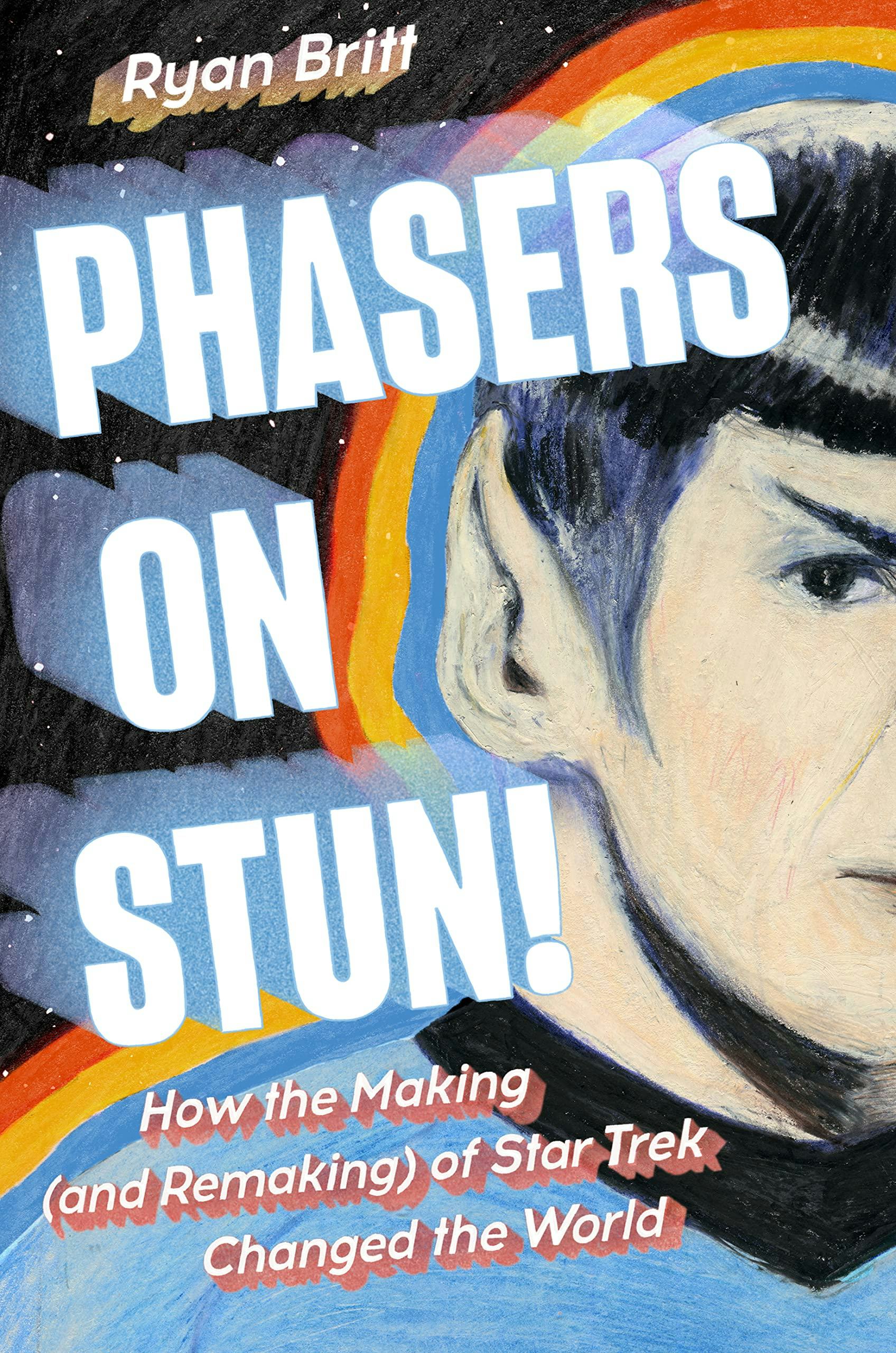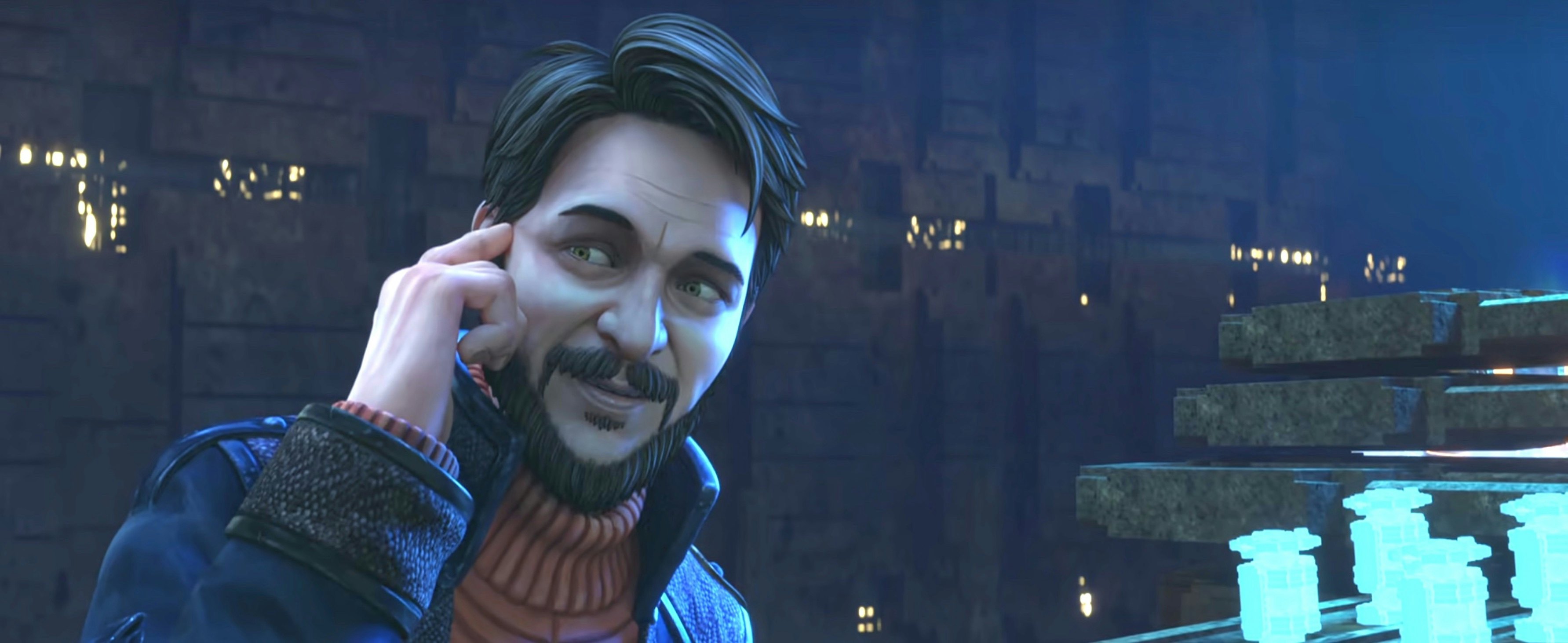
In 1994, when Wesley Crusher left Starfleet to join the enigmatic Traveler in dimensions of space and time beyond the known universe, Wil Wheaton was saying goodbye to Star Trek. Or so he thought. As a child actor, Wheaton had joined the cast of The Next Generation at the age of 15, playing resident space prodigy Wesley, a character who was written as a kind of younger version of Star Trek creator Gene Roddenberry, whose middle name was, in fact, “Wesley.”
Throughout the early seasons of The Next Generation, older (and crankier) Star Trek fans sometimes derided Wesley’s wide-eyed enthusiasm and status as a super-genius teenager. But now, as Wesley Crusher returns in Star Trek: Prodigy to guide another generation of teens, it’s very clear that Wil Wheaton is having the last laugh. Or perhaps, as he suggests, all that Wesley Crusher hate from the late ‘80s and early ‘90s has been blown out of proportion over the years.
“I want people to repeat this so that we can quash the misconception,” Wheaton tells Inverse. “For every one person who was like, ‘Man, I hate Wesley,’ there were literally a hundred kids who loved him. There were hundreds of kids who saw themselves, who identified with him, who grew up to be adults who work for Star Trek or NASA or JPL or who write for other science fiction franchises. He was really important to a generation of kids.”
As Star Trek: Prodigy centers Wesley Crusher in the thick of a space-time catastrophe, Inverse caught up with Wil Wheaton to get a sense of what it feels like, 30 years later, plus, how Wesley’s new role was very much inspired by Doctor Who and Wheaton’s own personal sci-fi fandom.
Spoilers for Star Trek: Prodigy ahead.
The Prodigy returns
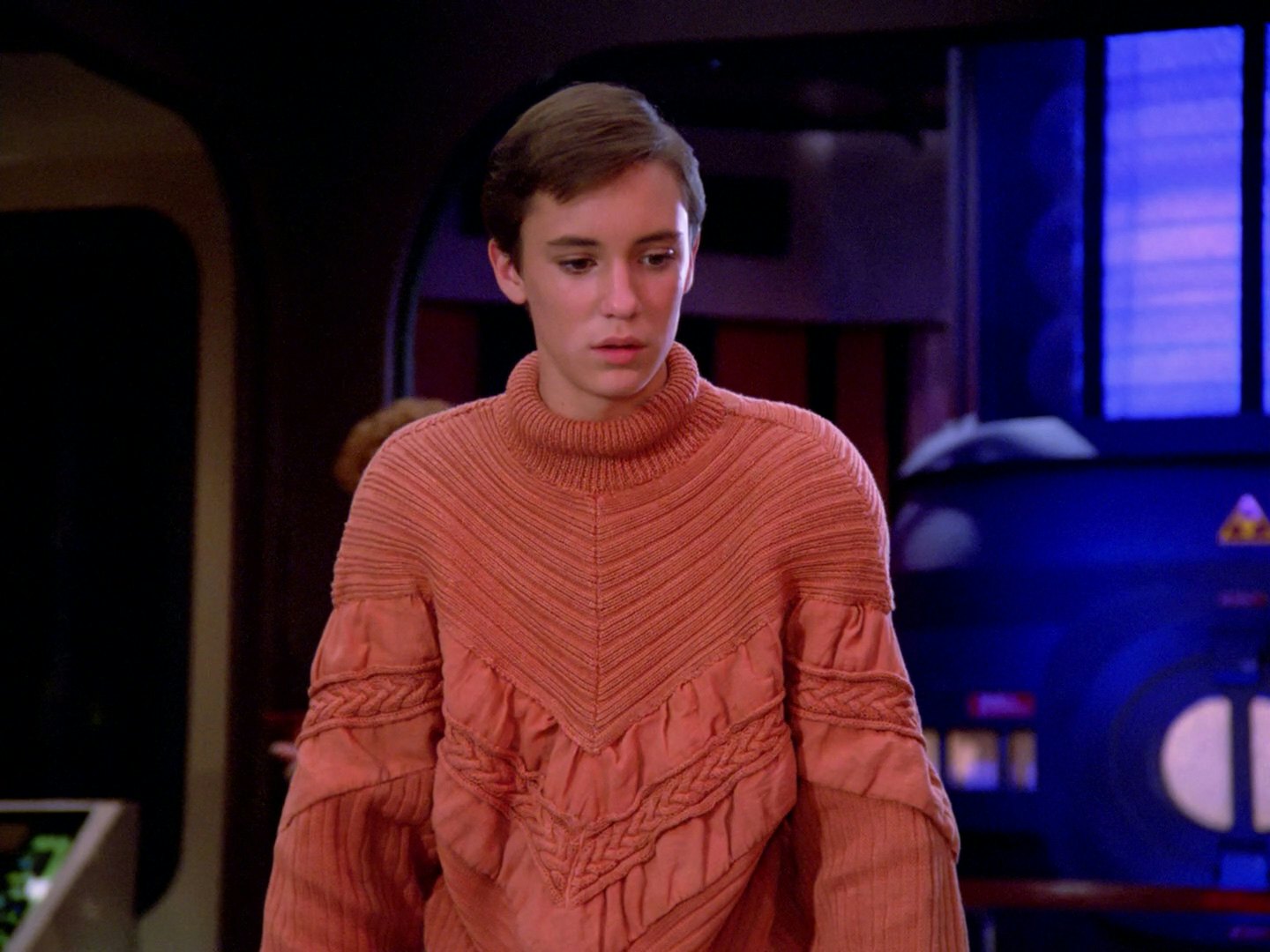
Starting with Prodigy Season 2’s ninth episode, “The Devourer of All Things Part 1,” the central characters of misfit Starfleet kids meet Wesley Crusher, a legend from his time on the Enterprise-D, but who now works as a Traveler, a kind of guardian of the multiverse within the Star Trek mythos. This was the path Wesley started in the 1994 TNG episode “Journey’s End,” but had been hinted at much earlier, in the 1987 episode “Where No One Has Gone Before.” Essentially, Wesley had the ability, from an early age, to use the power of his mind to impact spacetime itself. Outside of the space god “Q,” this makes Wesley perhaps the most powerful character in all of Star Trek history.
“It is not lost on me that he is now a mentor to a new group of kids,” Wheaton says. “This group of misfit outsider kids that don't fit in anywhere, who don't have a place to go call home, and they find that home in Starfleet and they find a family in each other. Wow. Does that mirror my experience as an actor on Star Trek and in my real life!”
“As [showrunners] Kevin and Dan [Hageman] said, Wesley's the original prodigy,” Wheaton adds.
But the implications of Wesley’s return to Star Trek are more than just symbolic.
Star Trek’s Time Lord
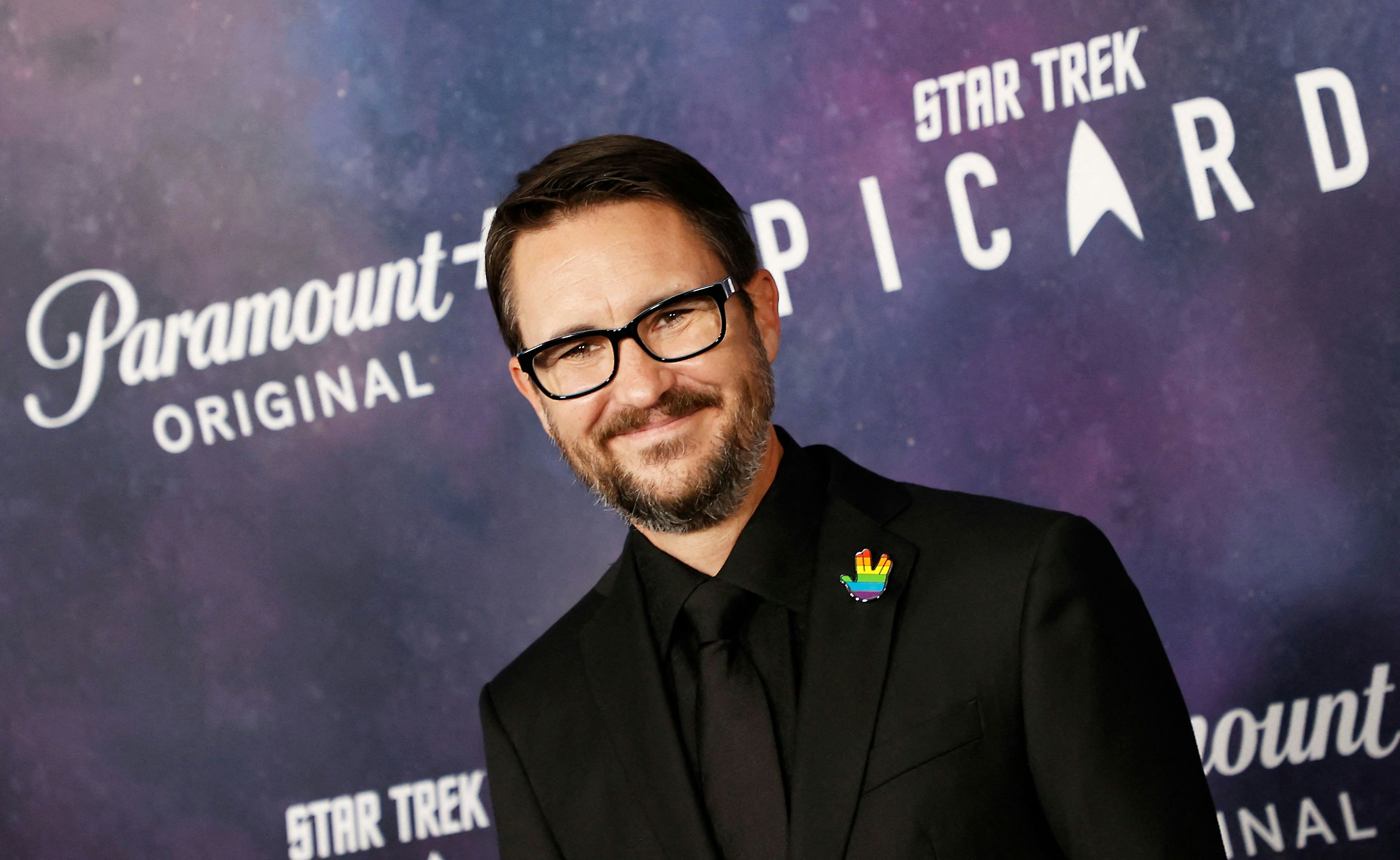
Longtime fans of Star Trek very often cross over with longtime fans of Doctor Who. Chronologically, this makes a certain amount of sense. Who debuted in 1963, Trek in 1966. And while Who ran continuously in the U.K. until 1989, Star Trek got its second life on TV with The Next Generation in 1987. When Enterprise ended in 2005 and capped off 18 straight years of Trek on TV, Doctor Who came back strong. So, it’s only been in the past few years that new Doctor Who and new Star Trek have aired on TV side by side. This fact is probably why there are several overt Who references in the latest season of Prodigy, and not just limited to Dal (Brett Gray) calling the basic conflict “timey-wimey.”
Instead, as teased in the finale of Picard Season 2, Wesley Crusher is basically a Time Lord from Doctor Who — a role he returned to with a much bigger splash in Prodigy Season 2.
“I’ve been a fan of Doctor Who since the ‘70s, and over the last decade or so, people ask me about Wesley as a kind of Time Lord,” Wheaton says. “Long before any of this happened, I had been writing fan fiction about him. I had been writing fan fiction where I was like, ‘What does it mean to be a Traveler?’ I think the Travelers are basically Time Lords and they’re using space, time, and thought the way the Doctor uses the TARDIS.”
While Wesley was fairly subdued in Picard Season 2, his Time Lord persona is cranked way up in Prodigy, so much so that it's basically impossible for a Who fan not to notice the homage.
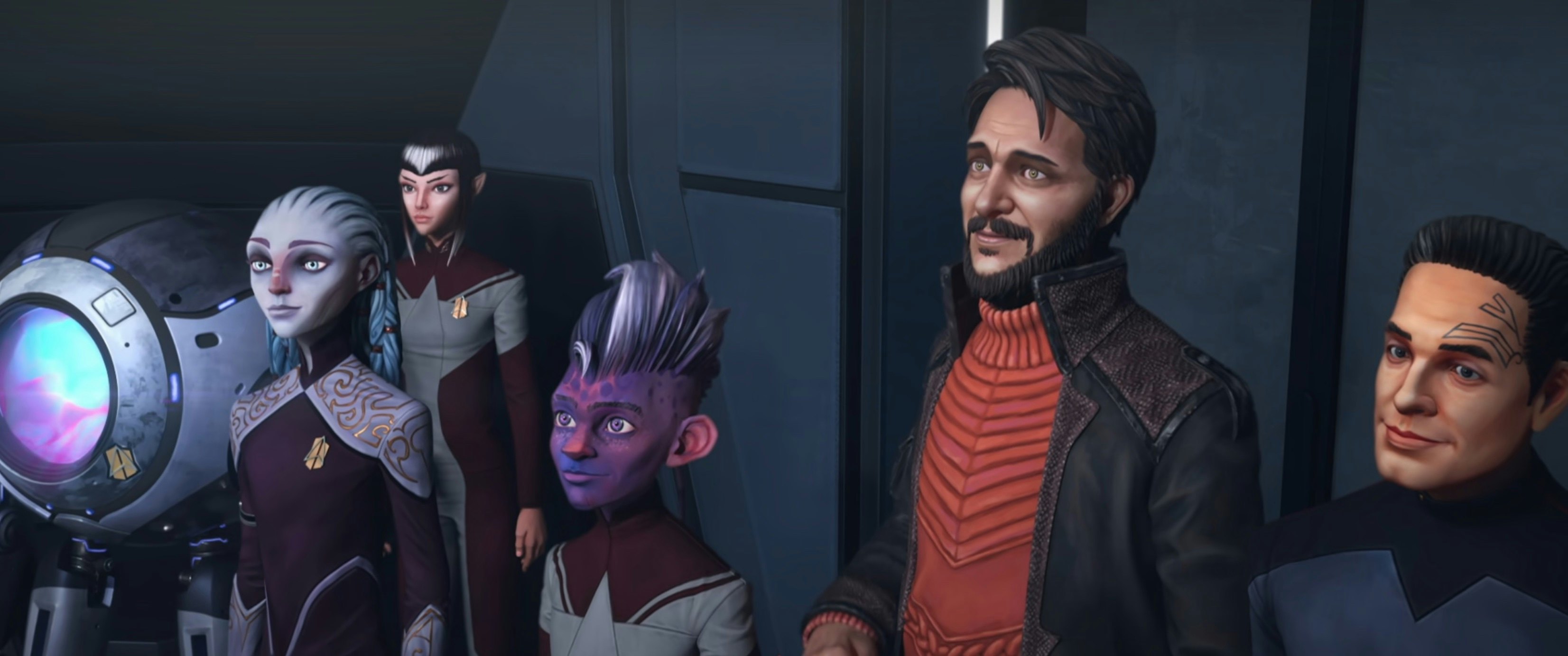
“We spent about half an hour finding that version of Wesley, and I remember us trying different things,” Wheaton reveals. “I was like, ‘I’m going to try this as Doc Brown. Now I'm going to try this as Dr. Ian Malcolm. Now I'm going to do this as David Tennant. And somehow all of those things kind of came together and we got what we have.”
Wheaton doesn’t have the very Doctor-ish coat worn by Wesley’s animated self in Prodigy, but he hopes to get one soon so he can “cosplay as myself” at a convention ASAP. But he also notes that the writing staff of Prodigy was all very aware of the Doctor Who connections, and felt that Wesley was very much Star Trek’s version of the Doctor, from now on.
“My friend Jennifer Munro, who writes for Prodigy, I texted her after I saw the episode just to thank her,” Wheaton says. “And she said that she thought, ‘Wesley is the 16th Doctor but in the Star Trek universe. She said he is our Doctor. At first, she said that the thing that is different is our Doctor doesn’t have two hearts.’ And then, a couple of minutes went by and she sent me another text message and she said: ‘Actually, wait, no, he does have two hearts. One is Wesley Crusher's heart and one is your heart.’”
“That was amazing,” Wheaton continues. “To see Wesley Crusher being compared in literally the same breath as the Doctor, knowing what that means, is an incredible honor for me.”
Star Trek: Prodigy is streaming on Netflix.
Phasers on Stun!: How the Making — and Remaking — of Star Trek Changed the World
